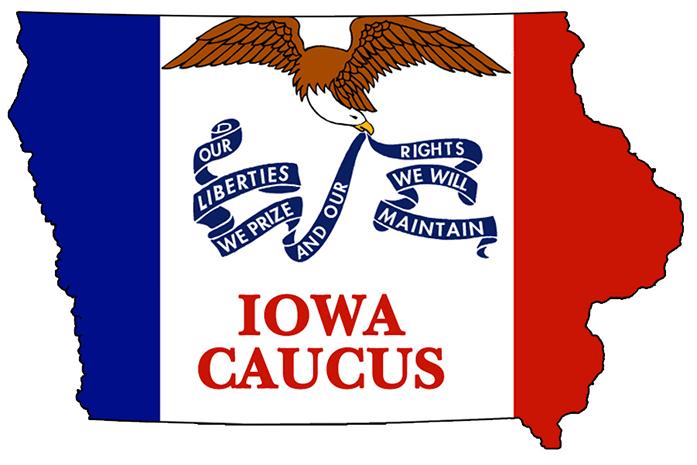Jace Brady
jacebrady@gmail.com
Every four years, a hybrid of constitutionality and party bylaws dictates a compelling nine-month period of political mayhem. Men and women from the most elite classes of society condescend to NASCAR aficionados, the politically dense, collegiate ideologues, and single-issue enthusiasts, all in an endeavor to coalesce sufficient votes to advance to the general election. This melee is the presidential primary process, and, as Iowans, we have the privilege of kicking off the primary season with our first-in-the-nation caucuses.
Navigating December and January in Iowa with the impending caucuses is a precarious proposition. One can hardly enter a doughnut shop or attend a sporting event without being besieged by an overeager candidate, desperately appealing for one’s vote. Iowa often establishes the sentiments of voters nationwide, and countless candidates are shown that their presidential aspirations are futile as caucus results roll in. In an endeavor to soften the blow for these candidates, I will set the stage for the race and predict the winners for each party.
The Democratic Party polls are much closer than anyone would have predicted only a short time ago. The self-proclaimed democratic-socialist Sen. Bernie Sanders is closing in on apparent front-runner Hillary Clinton. The Iowa caucuses historically have low turnout, and voters must be enthused by the message of the candidate to be willing to brave a cold, February night. Sanders’ message has been instilling this sort of enthusiasm in people around the country, while Clinton has been unable to muster the same sort of response. In a race in which turnout will determine the winner, I predict Clinton suffers a 2008 flashback and watches as an insurgent from the left edges her out for victory. Democratic Party caucus results: Sanders wins by 5 percentage points, and Martin O’Malley performs better than expected, giving him a mandate to remain in the race.
The Republican caucuses will be flooded with contenders all equally delusioned that they will be the next GOP candidate. The last few elections have shown that Iowa’s winner is an inadequate predictor of the Republican nominee, but a poor performance is usually a disqualifier. Donald Trump has held a comfortable lead in the polls for several weeks but again, the caucuses are all about turnout. Many of these polls are measured using registered voters, rather than likely voters, and are thus worth zero in predicting an election.
Additionally, the “voters” Trump is eliciting support from seem unlikely to be the same voters who show up at an election. I predict Trump voters forget to leave their bunkers long enough to show up at the caucuses, and another conservative candidate swoops in for the win. Republican Party caucus results: Ted Cruz takes a commanding win, Marco Rubio surges to second, and Trump finishes third. Jeb Bush finishes far enough back that people suggest he drop out and allow the party base to coalesce around Rubio. Rick Santorum, Mike Huckabee, and Lindsey Graham realize the conservative and evangelical Christian voters want nothing to do with them, and they leave the race. The other half-dozen candidates are moderate enough they hope for a better performance in New Hampshire the following week.



